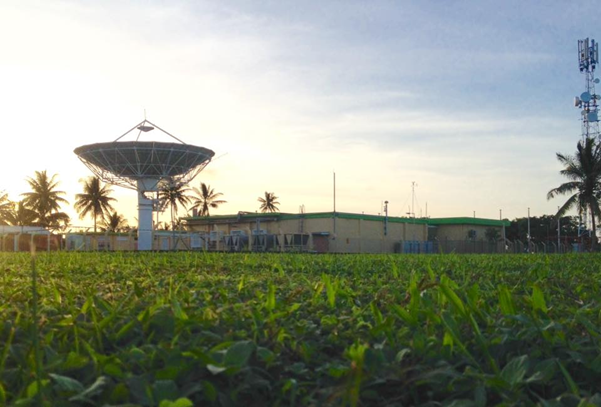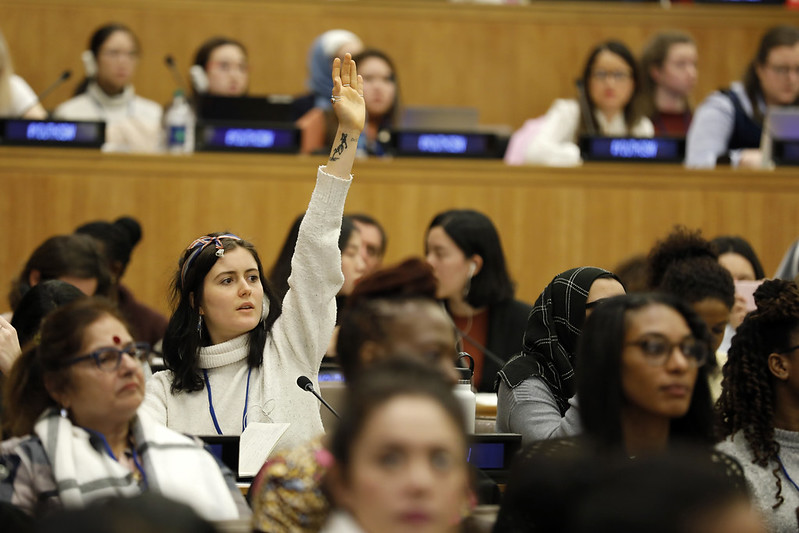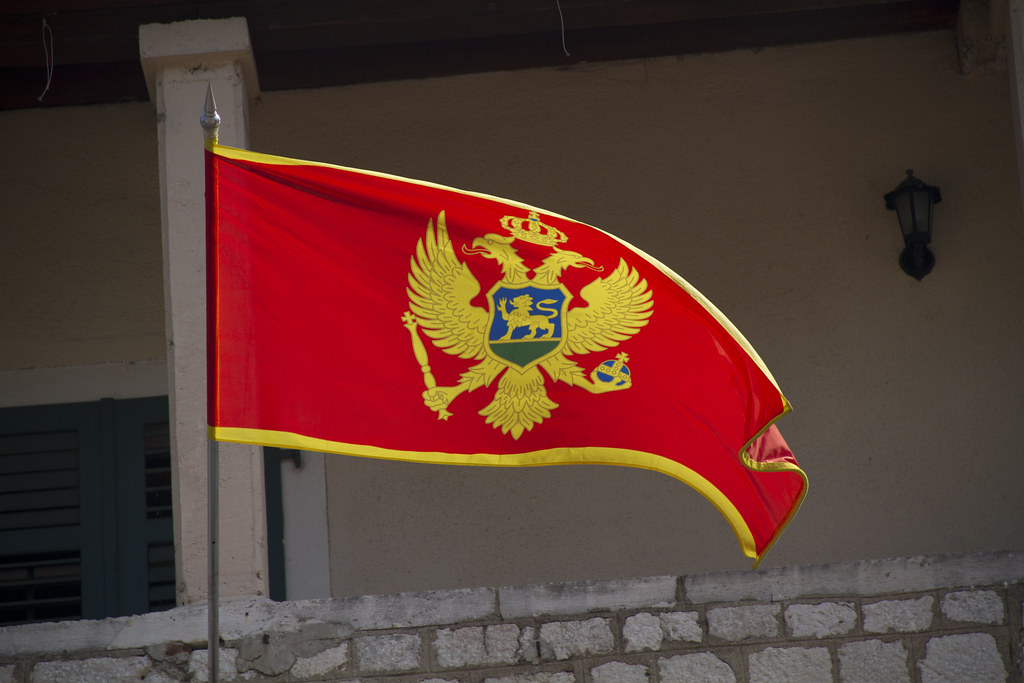In a historic move NATO included Women, Peace and Security front and centre of its new Strategic Concept. While this represents progress, the challenge remains for NATO to operationalise its policy commitments in practice.
In recent years Women, Peace and Security (WPS) has formed a central part of NATO’s identity projection. Women, Peace and Security – which is encapsulated in UN Security Council Resolution 1325 and reiterated in nine followup resolutions – calls for the better representation of women in peace and security, while acknowledging the gendered impact of armed conflict. It is integral to the new Strategic Concept agreed at the recent Madrid Summit, which marked the first time NATO has acknowledged the relevance of gender to the alliance’s purpose, despite NATO working on such issues for over 50 years. NATO’s Special Representative on WPS was also given a slot on the main summit agenda, another first. Yet significant challenges remain, not least of which is the contradiction between this increased visibility and the gendered silence from NATO on the applicability of WPS in its response to Russia’s full-scale invasion of Ukraine in early 2022.
NATO has come a long way since it first adopted a policy on WPS in 2007. We have seen the creation of the high-level position of Secretary General’s Special Representative on WPS and the establishment of a Civil Society Advisory Panel on WPS, the first time NATO has ever formally consulted civil society in the policymaking process. The recently adopted Strategic Concept commits NATO to integrate WPS across all its core tasks and to “continue to advance gender equality as a reflection of our values.”
The scholarship on NATO and WPS identifies several challenges to realising the transformative potential of the agenda. Primarily, NATO’s commitment to WPS has been external-facing — an issue on which to build relationships with “awkward” partners, to project a “good news story” about the alliance, or as a tool to increase operational effectiveness. In addition, while some individuals at NATO are committed to WPS, the provision of inadequate resourcing and the gendered policing of WPS work ‒ including of men advocating on WPS ‒ indicates that there remains significant institutional resistance.
The gendered silences in NATO’s response to the full-scale Russian invasion of Ukraine in February 2022 further illustrate the challenges to operationalising NATO’s WPS commitments. These silences are surprising both because of the gendered impact of the conflict but also because Russia’s actions are a direct threat to NATO values. In addition, Ukraine is a signatory to NATO’s own WPS policy signed in conjunction with a number of partners, and NATO has supported the development of Ukraine’s WPS policy since 2014. If NATO were to live up to its WPS policy commitments in its response, we would expect Gender Advisors to be part of the deployment of the NATO Response Force and for WPS to be prominent in NATO’s public diplomacy in order to uphold and defend NATO values. That we have seen neither of these significantly undermines NATO’s commitment to WPS.
Further contradictions in NATO’s approach to WPS emerged at the NATO Summit in Madrid, where the Special Representative on WPS was given a slot on the agenda. However, the resulting discussion was among women defence and foreign ministers. An opportunity was therefore missed to gather all allies to reaffirm their commitment to WPS, and instead WPS was relegated to a “women’s issue” something NATO has to-date sought to resist. Twenty NATO foreign and defence ministers are women and yet just nine attended (eight foreign and one defence), suggesting more pressing meetings were taking place at this time, and further undermining the efficacy of reserving such a slot on the programme. The intention was that women ministers “lead by example” and “disrupt” by virtue of their gender, but such a stereotypical understanding of women as communal, caring, and empathetic – traits not associated with traditional forms of leadership – weakens the ability of women to bring about the change expected of them. In addition to letting men off the hook, it also shifts the focus and accountability for change away from the institution (NATO), and onto the individual (women ministers).
Another Summit headline was the accession of two WPS-sensitive states: Sweden, known for its feminist foreign policy, and Finland which has also been a staunch advocate of WPS at NATO while a partner. We might therefore have expected them to facilitate greater attention to WPS, both at the summit but also in NATO’s broader response to the Russia-Ukraine War, the very impetus for their membership aspirations and an issue that they have been included in key meetings for. Both had previously used their WPS expertise as partners to secure a seat in discussions at NATO they otherwise would have been excluded from and to facilitate a working relationship in operations. Once they had a seat at NATO meetings for other reasons their WPS advocacy seems to have disappeared — there is a danger NATO has lost two key WPS advocates, by bringing them into the fold. Other partners, including Australia, have committed to working with NATO on WPS and can provide important expertise and drive for NATO to do more going forward.
What next for Women, Peace and Security at NATO?
The Strategic Concept provides a clear impetus for NATO to integrate WPS across its core tasks. Yet this sits in contradiction to NATO and its allies silence on their WPS commitments in response to the Russia-Ukraine War. The Madrid Summit provided a missed opportunity to bring allies and partners together to publicly affirm this commitment to WPS, including in relation to Ukraine. We are therefore at a critical turning point for WPS at NATO. The alliance has good policy but the challenge is how to operationalise that in practice, not just in NATO’s day-to-day work but also in response to emerging conflict and crises on NATO’s borders. This will require leadership at all levels and across all genders, WPS has always been far more than a women’s issue and requires more than an “add women and stir” approach. The effective implementation of WPS requires a gender perspective to be integrated across NATO’s core tasks with the support of the allies, something NATO’s own policy acknowledges. NATO is only as strong as it allies, and it is time for all member states (new and old) to step up and take responsibility for realising their own agreed WPS priorities.
Dr Katharine A. M. Wright is a Senior Lecturer in International Politics at Newcastle University (UK). Her current research focuses on gender and security at NATO, including the alliance’s engagement with UN Security Council Resolution 1325 and the Women, Peace and Security (WPS) agenda. She is broadly interested in how militarised understandings of WPS influence its transformative potential; and how NATO’s engagement with WPS is projected through strategic narratives and received in popular culture.
This article is published under a Creative Commons Licence and may be republished with attribution.




